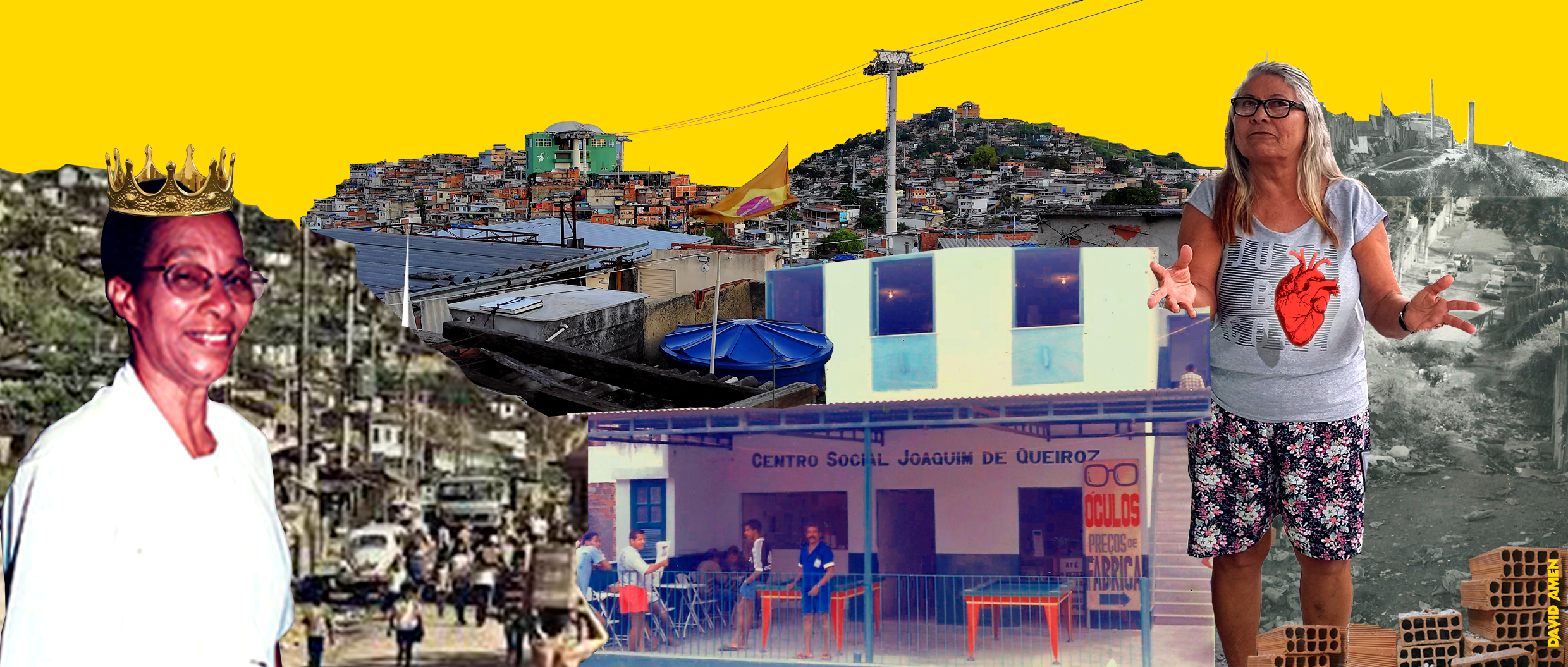
Clique aqui para Português
July 25 marks Afro-Latin American, Afro-Caribbean and Diaspora Women’s Day, a date that celebrates the diversity, resistance, and international struggle of Afro-diasporic women in the region in their fight for rights. This article is part of RioOnWatch‘s series on Memories of Favela Power, which documents and celebrates the history of Rio de Janeiro’s favelas through narratives and reports from residents’ collective memory, in their daily struggle to lead fulfilling lives.
Like all favelas in Brazil, Complexo do Alemão (CPX), in the North Zone of Rio de Janeiro, is rich in stories and memories of women and men involved in the fight for rights. It is always a pleasure to listen to and honor the stories from our elders about the favela. Stories of when everything around here “was just bush” and of when homes did not yet have electricity. Stories of the region before it became the iconic Complexo do Alemão, one of the largest groupings of favelas in the city, and home to over 70,000 residents according to the latest 2022 census data from the Brazilian Institute of Geography and Statistics (IBGE).
It’s pure nostalgia. Our elders share accounts of their childhoods and games that no longer exist. They particularly talk about the spirit of community, which was much more genuine in those days. Days of collective efforts to build a neighbor’s house, and, above all, of leaders who left a mark fighting for improvements for the whole area—leaders like Odete Alves and Mariza Nascimento.
Documenting the history of Complexo do Alemão through the struggles of Dona Odete, Mariza Nascimento, and so many other leaders is crucial to preserving the true history of the fight for dignity in the favela.
Dona Odete Does Not Back Down! She Was, Is, and Will Always Be Fundamental In Hard Times
In the heart of Complexo do Alemão, Dona Odete Alves, now 85, emerged in the mid-1970s as an icon of perseverance, strength, and leadership. She arrived in Rio de Janeiro on February 22, 1970, and according to her, “only for a visit,” despite her parents’ disapproval. A Black woman from Minas Gerais, Alves is the daughter of a small farmer from Cotaxé, located in the rural region of the state of Espírito Santo, bordering Minas Gerais. She brought with her determination, a strong work ethic, and great strength—traits of a woman who grew up in the countryside, taking on responsibilities to help her family from a very young age.
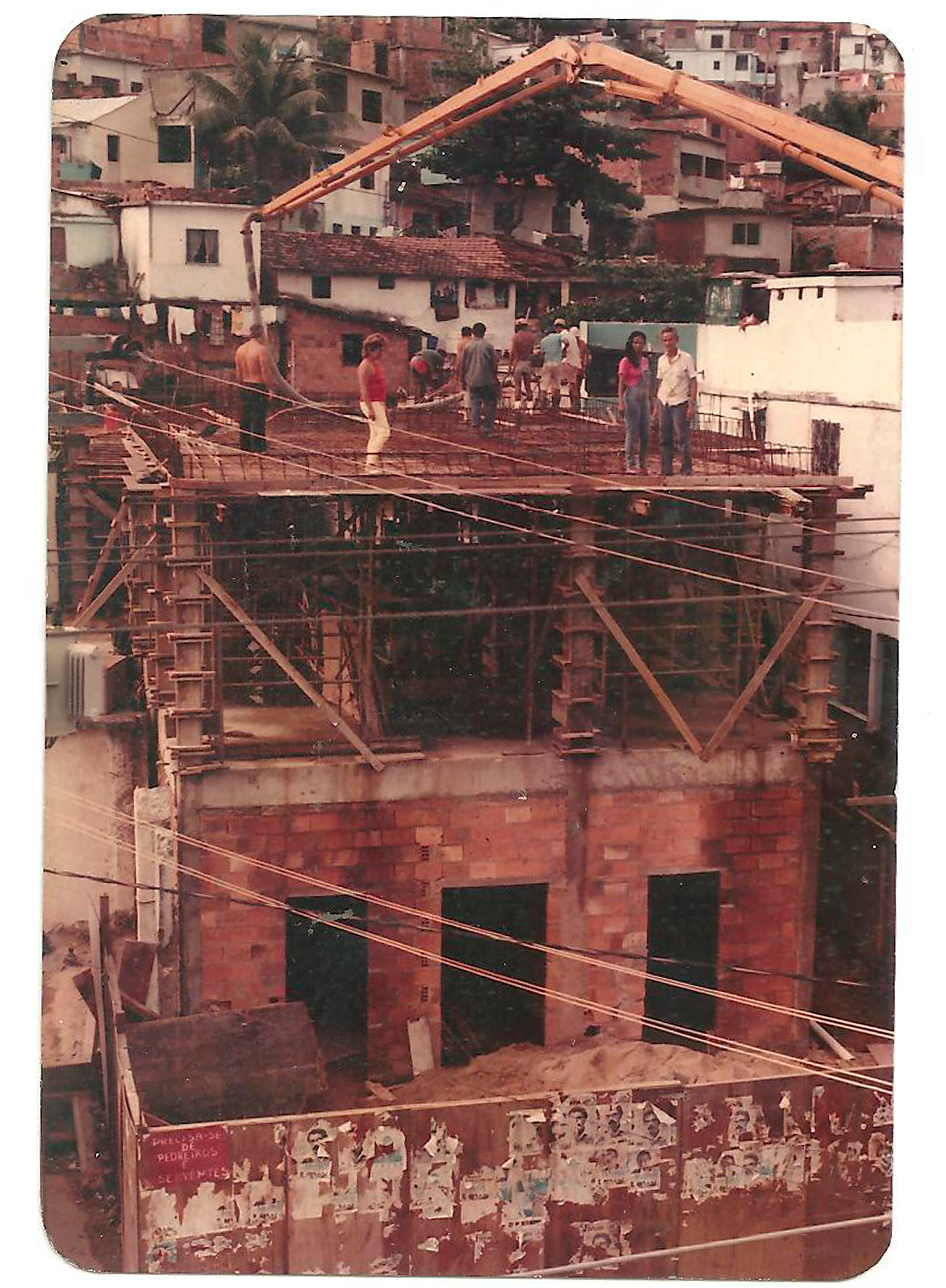
It did not take long for Dona Odete to get involved in local politics. Around 1973, troubled by the State’s neglect and various issues causing serious problems for the community, she began to engage with the Grota Residents’ Association, when it was still known as the Joaquim de Queiroz Social Center. By the early 1980s, she became the first and only woman to lead that association. Since then, the favela has achieved many advancements. A resident of the Complexo recalls Dona Odete visiting his mother during his childhood:
“Legendary! My mother was very close friends with her. I remember her coming over to our house with Mr. Zé Mineiro… they would talk for hours about various topics related to the favela.” — Gildon Santos
For a few local leaders, Odete Alves is a synonym for strength, having faced many challenges in the favela. “She can never be forgotten. There should be a space to preserve this memory,” emphasizes Lucia Cabral, president of the EDUCAP NGO and a Complexo do Alemão resident. She recalls, “I used to think she was so beautiful when I was a teenager. A symbol of a warrior woman. I remember wanting to be just like her.”
Odete’s determination was evident in her pursuit of essential improvements, such as basic sanitation, electricity, and drinking water. The connections she established with local authorities, government bodies, and politicians of the time were notable. Her dedication to the community earned her deep respect from residents. On many occasions, Alves was the only woman seated at the table with federal and state deputies making decisions and advocating for Complexo do Alemão.
“Before I became president of the association, the first politician came along: Federal Deputy Léo Simões. He had the a habit of waltzing in and walking all over everyone. During a Board meeting, Léo sat down and crossed his legs, but he didn’t realize there would be someone there to stand up to him. He berated everyone, all those men. That was when I approached him, tapped him on the shoulder, and said: ‘you’re in a borrowed house; this is not your home. I demand respect’.” — Odete Alves
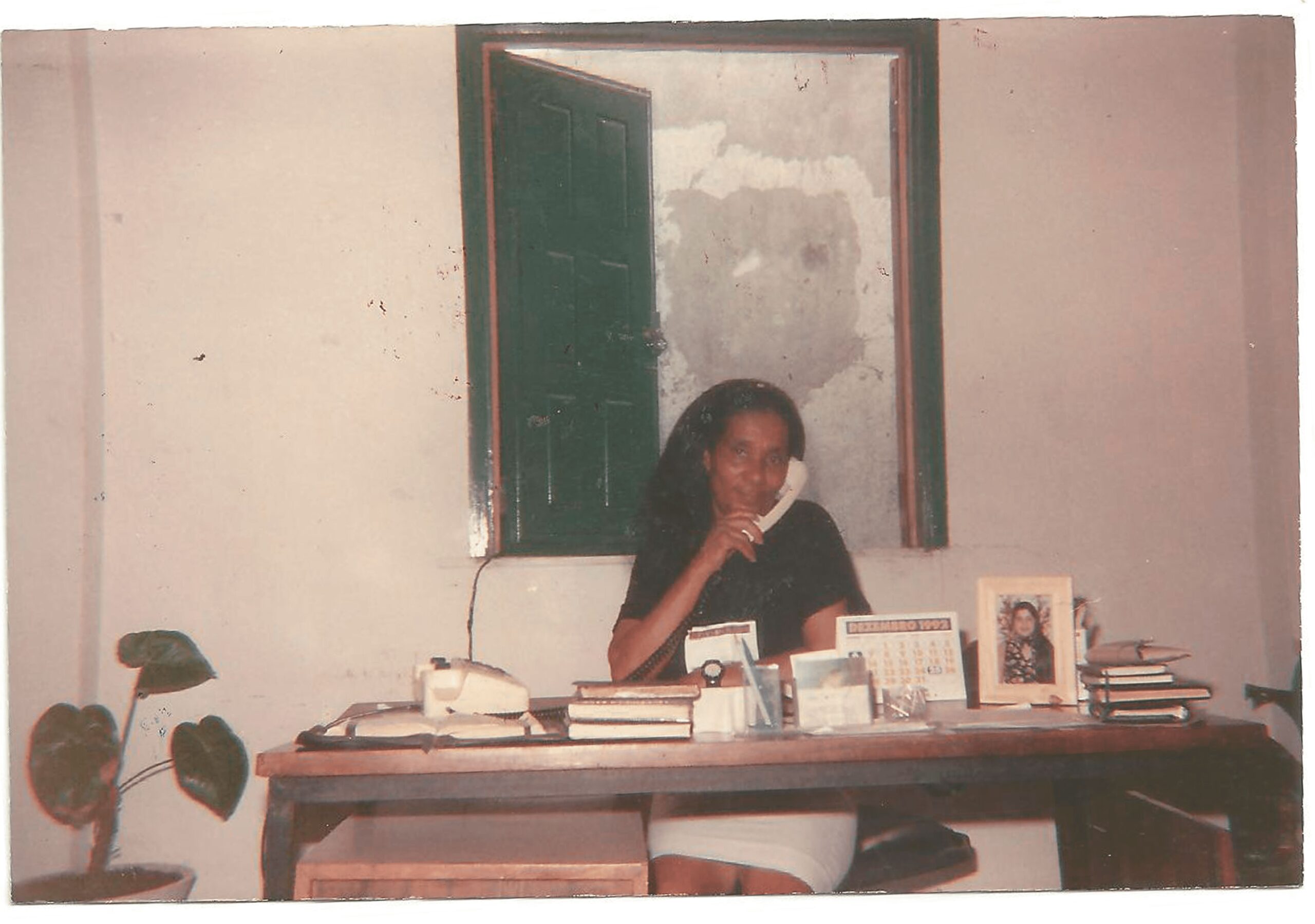
And from the back of the room, one of the deputy’s aides said, “See, Léo, I told you you’d meet someone one day. Well, here she is, you’ve just met her,” referring to Alves.
It is worth noting that electricity, water, and even the first soccer field at the top of Morro do Alemão were achieved through direct negotiations with then-Governor Leonel Brizola.
“Mister governor, I’m managing the association and it operates as a business, though it’s not a business. Take on the electricity for the ‘Complexo.’ I used Complexo [which includes several favelas that are part of the greater complex] because it was a request for everyone, not just for my association. There was a lot of poverty, and nobody had the means to pay for electricity.” — Odete Alves
She was a relentless woman who only stopped when her demands were truly met. She is a key figure for Complexo do Alemão and for the history of Rio’s favelas.
“Odete is a far greater figure than we could ever imagine, as she took on the role of a mayor within the community and pursued many improvements. She was the starting point in helping us achieve what we have in the favela. She’d attend meetings and stand up to the mayor. She always had that powerful voice and strength to fight for her goals and for the community’s.” — Lucia Cabral
Mariza Nascimento’s Fight for Health in the Morro do Adeus Favela
Just like Dona Odete, Mariza Nascimento was at the forefront of Complexo do Alemão’s most important struggles. In one of the chapters of her book Social and Political Life in Favelas, researcher Natalia Fazzioni introduces Mariza Nascimento’s importance to the community:
“Mariza’s personal journey illustrates how the process of change unfolded in social movements and public health policies for this area of the city between the 1980s and 1990s. Mariza actively participated in the Local Executive Group (GEL), which brought together various community leaders from the Leopoldina region and received support from researchers at institutions such as the Oswaldo Cruz Foundation (Fiocruz) and the Federal University of Rio de Janeiro (UFRJ). The group met at the Américo Veloso Health Center in Praia de Ramos, and later, in 1994, after the consolidation of the [Brazilian] Unified Health System (SUS), it was fully involved in the creation of the District Health Council (CDS) for Planning Area (AP) 3.1. Mariza eventually became vice president of the CDS, and years later, the first president of the Complexo do Alemão Community Health Council (CONSA).”
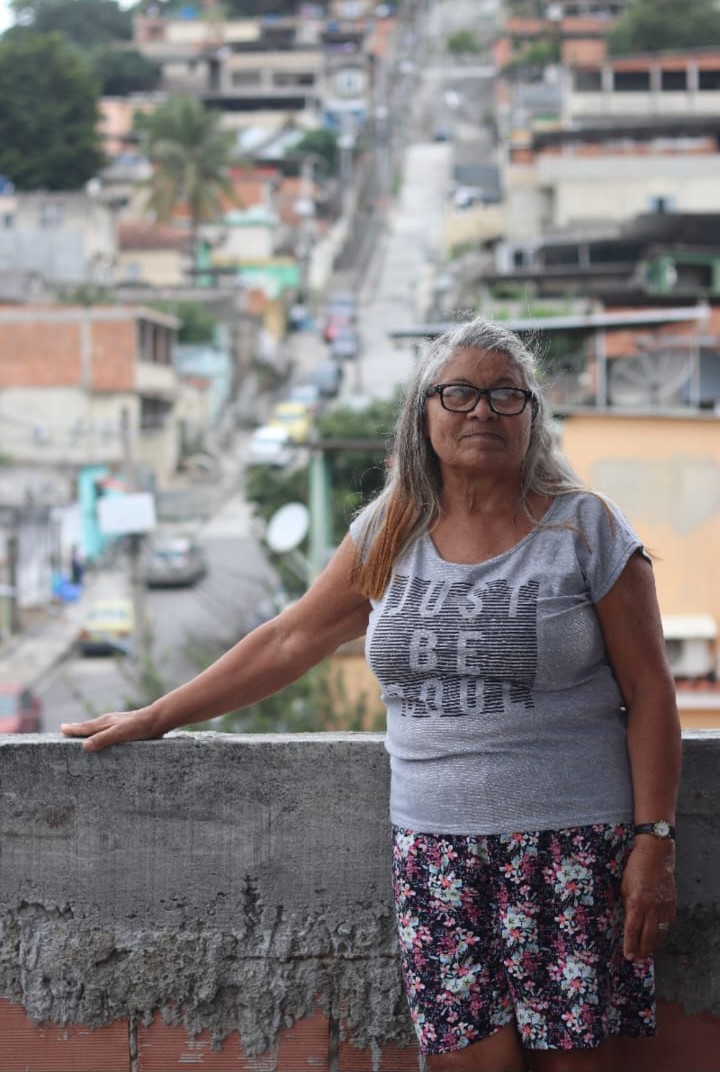
Dona Mariza Nascimento, 76, originally from the state of Paraíba in northeastern Brazil, arrived in Complexo do Alemão’s Morro do Adeus favela in the 1970s. Despite having worked as a housekeeper for a decade, she had been a teacher in Recife, a major city in northeastern Brazil, and never abandoned her belief in the fight for rights, political power, and education. However, it was not easy at first. Her expectations and reality did not align:
“I arrived in Morro do Adeus on a rainy night. I didn’t expect it to be like that—I thought Rio de Janeiro was something else, not this hill, full of mud and so many difficulties. It was really bad.”
Over time, the idea of changing that reality matured. Her contribution to the establishment of the Morro do Adeus Community Association was significant: she carried bricks and literally led the construction efforts. She was the first female representative of the Complexo do Alemão Administrative Region. Dona Mariza embodies the resilience and transformative vision that women brought to the social and political development of the community.
“I truly joined the struggle in 1980, when the men came together to build the Residents’ Association headquarters. Then, we gathered a group of women and formed the women’s committee, which provided full support to the men working on the construction. The entire community came together to help, carrying bricks and cooking—it was beautiful to see such organizing.” — Mariza Nascimento
Alan Brum, director of the Roots in Movement Institute, who began his work as a teacher in Complexo do Alemão in the late 1990s, has the following to say about Dona Mariza:
“I met Mariza in an extraordinary way through her work in the struggle for health. However, she had already been deeply involved in advocating for the creation of the Complexo do Alemão Administrative Region, where she became the first regional administrator. She is a leader with whom I had the pleasure of working closely, especially during the founding of CONSA, which we established to co-manage the initial efforts of community health agents at CPX’s first health center. She has always been someone who thought collectively, particularly in her fight for health in Complexo do Alemão.”
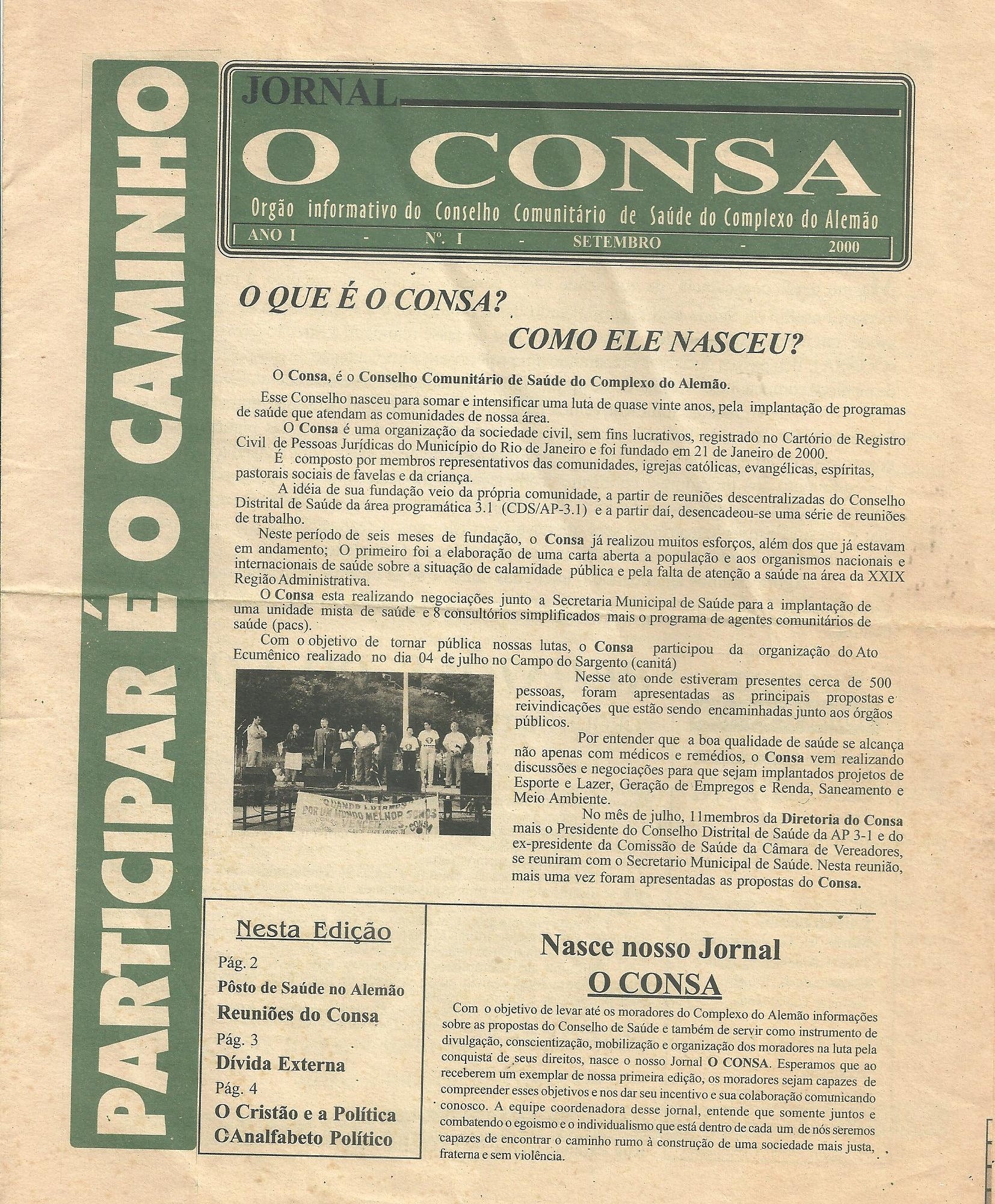
Move Over Men, Here Come the Women!
All social work in Complexo do Alemão is inspired by the legacy of these women and recognizes their significance to the region. They faced countless battles, but their victories continue to resonate through the streets of the favela complex. Their legacies are intertwined with the community’s achievements, from infrastructure improvements to advancements in rights and political representation. The strength and determination of these leaders inspire generations and underscore the vital role of women in the political and social history of Rio de Janeiro’s favelas.
The researcher and sociologist Thiago Matiolli, in conversations with Mariza for his master’s thesis, mentioned that he did not delve too deeply into some details: “as her [Mariza’s] memory doesn’t reach that far… But consider how many leaders developed under her guidance in the 1980s and 1990s… how many were mentored, not only politically but academically as well, and how many analyses, reflections, and worldviews emerged from Mariza’s perspective on things.”
The trajectories of these women not only illustrate their personal struggles but also highlight the crucial role women play in building resilient and empowered communities. Odete Alves and Mariza Nascimento stand as symbols of resistance and resilience in Complexo do Alemão, demonstrating how women shape and influence the social and political fabric of their communities. Their contributions are a living testament to the transformative power and unwavering determination of women amidst challenges and adversity.
“They are historical figures, not just of Complexo do Alemão, but of the city of Rio de Janeiro and the country itself. Therefore, discussing these struggles is, above all, a discussion of the urban history of Rio de Janeiro.” — Thiago Matiolli
About the author: David Amen was born and raised in Complexo do Alemão, is co-founder of the Roots in Movement Institute, a journalist, graffiti artist, and illustrator.
